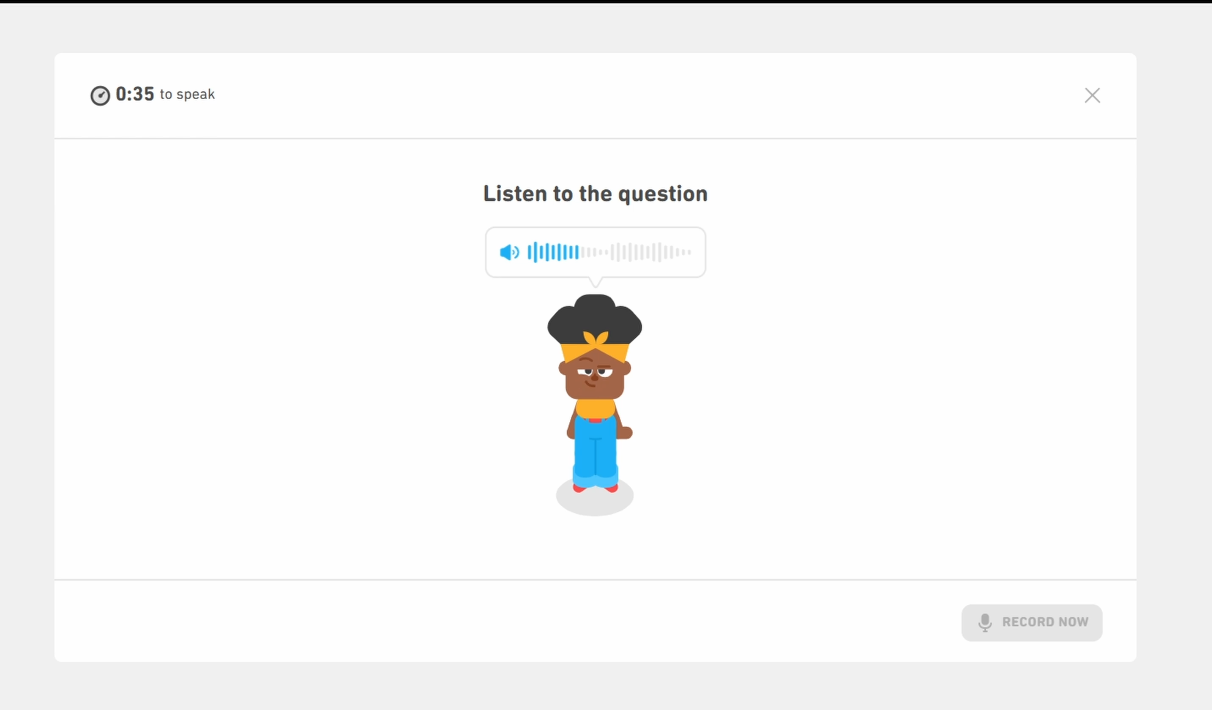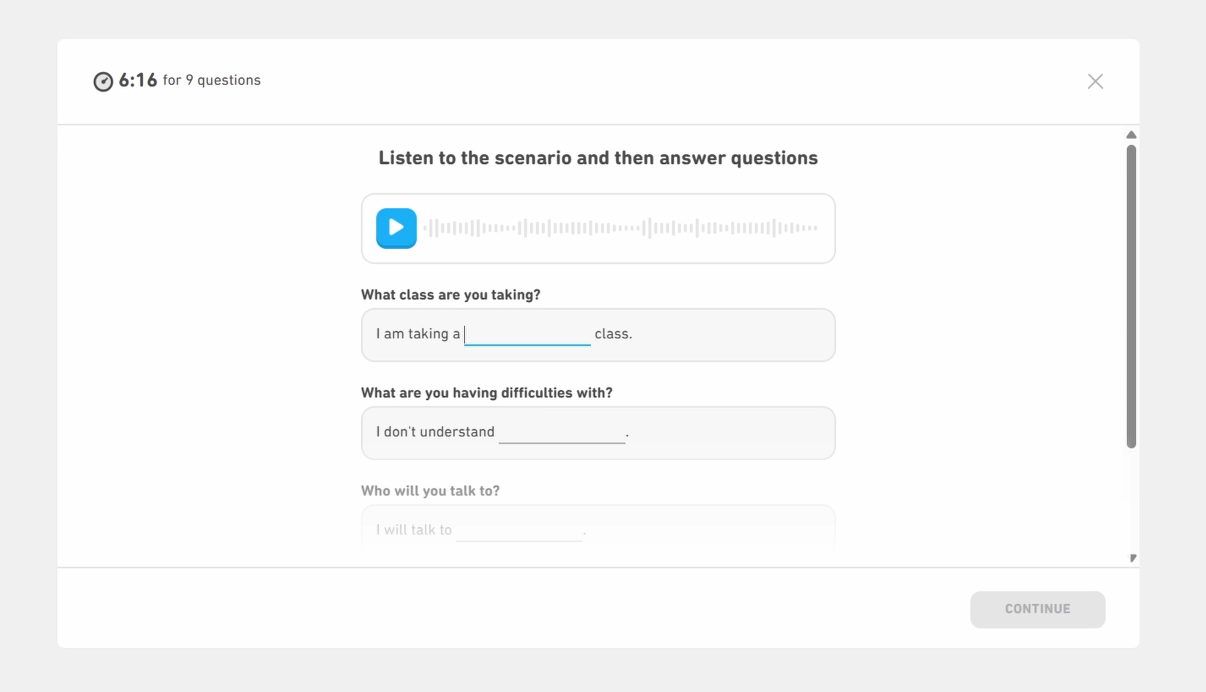🧪 Big Changes Coming to the Duolingo English Test (Starting July 1st, 2025)

🚨 New Format, New Rules — Are You Ready?
Hey, it’s Lance from DET Study, and today we’re talking about something you really don’t want to miss:
Major updates are coming to the Duolingo English Test starting July 1st, 2025.
If you're planning to take the test and walk in without knowing about these changes... let's just say, you're not going to have a great time. 😬
Here’s what’s changing:
- A brand-new speaking question unlike anything before
- An upgraded listening section with a twist
- A few familiar tasks getting the axe
- And most importantly—why this matters to YOU
Let’s break it down 👇
🗣️ 1. Say Hello to “Interactive Speaking”
The old speaking tasks felt a bit robotic, didn’t they?
Now, Duolingo’s shaking things up with a conversational-style speaking section called Interactive Speaking.

Here’s how it works:
- You’ll hear a question from a Duolingo character (like Bea or Oscar).
- You have up to 35 seconds to respond.
- Then you’ll get another question… and another… and another—six to eight in total.
Each question builds on your last answer.
➡️ Say you like cooking? Next question might be: “What kind of food do you like to cook?”
What they’re testing:
- Clear pronunciation
- Staying on topic
- Vocabulary range
- Ability to think on your feet
💡 Heads-up: If you tend to freeze under pressure, this is your cue to start practicing—mirror talks, voice recordings, anything helps.
🎧 2. Interactive Listening Gets a Makeover
Next up: Interactive Listening is getting an upgrade with a new section called Listen and Complete.
Here’s the new flow:
- Listen to a short scenario or conversation.
- Answer 3–4 fill-in-the-blank questions based on what you heard.
- Respond to a traditional Listen and Respond task.
- Finish with a short written summary of the conversation.

It’s basically a three-part listening challenge that tests:
✔️ Detail recognition
✔️ Academic vocabulary understanding
✔️ Summarization skills
Example scenario:
You’re in a biology class, confused about a lab assignment. You ask your professor for help.
Then you’ll be asked to complete sentences based on that conversation. 🎓
🧹 3. What’s Getting Removed
Alright, now for the part that might hurt your feelings—or not.
Two question types are getting cut completely:
- ❌ Read Aloud
- ❌ Listen, Then Speak
Duolingo didn’t really say why… they just removed them. No goodbye, no cake. Just gone. 🙃
Also, the minimum time limits for several speaking and writing tasks are being removed.
That means:
If you finish early, you can move on. No more sitting there awkwardly waiting for the timer to end.
This applies to:
- Speak About the Photo
- Read Then Speak
- Interactive Writing
- The Writing Sample
- The Speaking Sample
⚠️ BUT!
That doesn’t mean you should rush. In fact, for speaking and writing, it’s still a good idea to speak or write for the full time if you can—you won’t get bonus points for finishing fast.
💡 4. Why This Actually Matters
Let’s get real—why are these changes happening?
It’s not just about refreshing the format. It’s about:
- Making the test feel more natural, like what you’d face in college
- Testing your actual speaking and listening ability
- Removing the “memorize and hope” strategy
And here’s the kicker:
🕐 The test is still under one hour.
So Duolingo made these improvements without adding extra time.
This is not change for the sake of change.
It’s a better way to show what you can really do.
✅ What You Should Do Next
If you're taking the test on or after July 1st, here’s what I recommend:
👉 Go to the official Duolingo English Test website and take the free practice test.
👉 You’ll find the new question types there, including Interactive Speaking.
And if you want to take your prep to the next level…
🌐 Head over to DETStudy.com
We’ve got:
- 15,000+ practice questions
- AI scoring
- Sample answers
- And the Interactive Speaking section is coming soon
Oh—and please don’t be that person Googling “What is interactive speaking?” the night before your test. 😅
Start early, and you’ll be fine.

